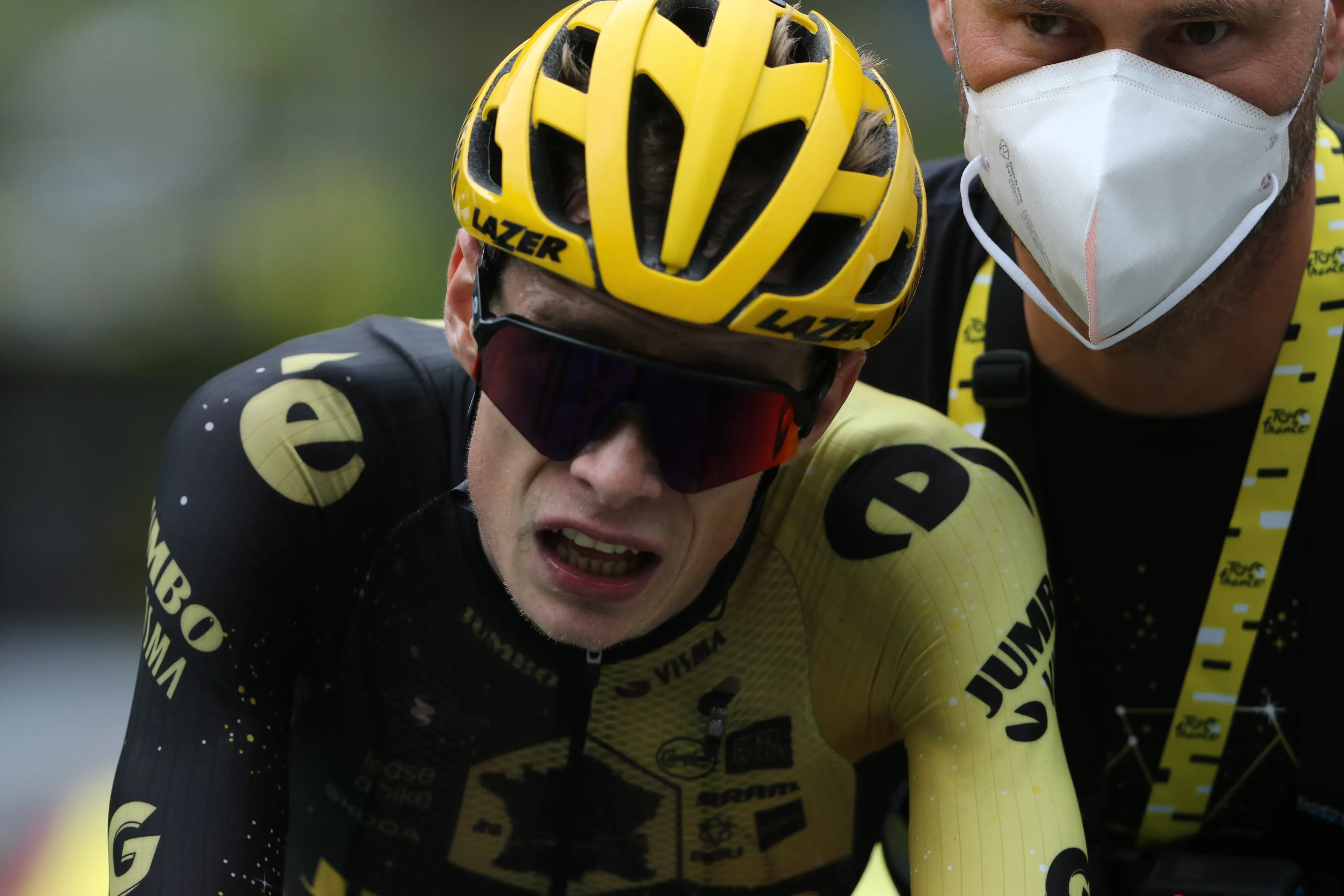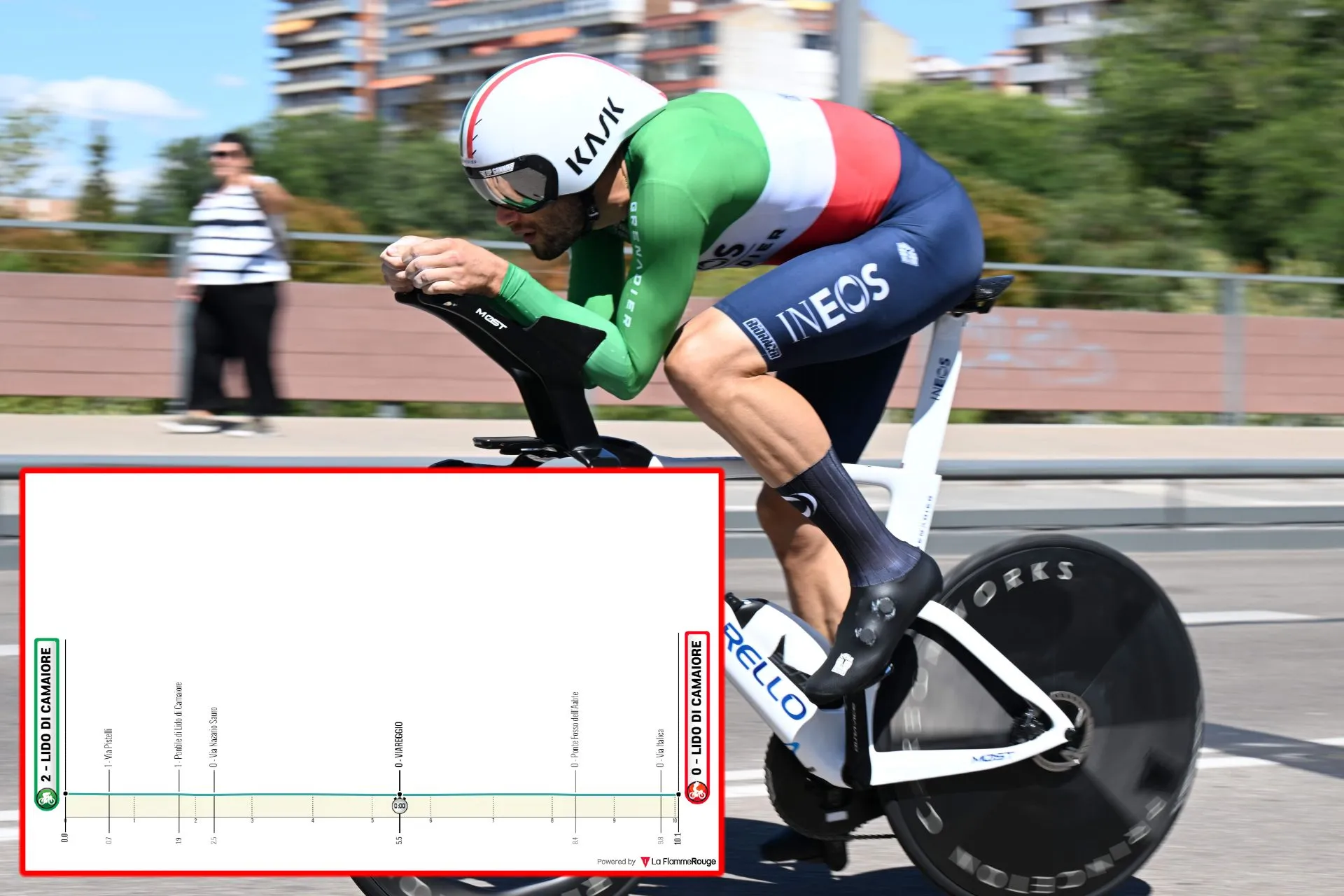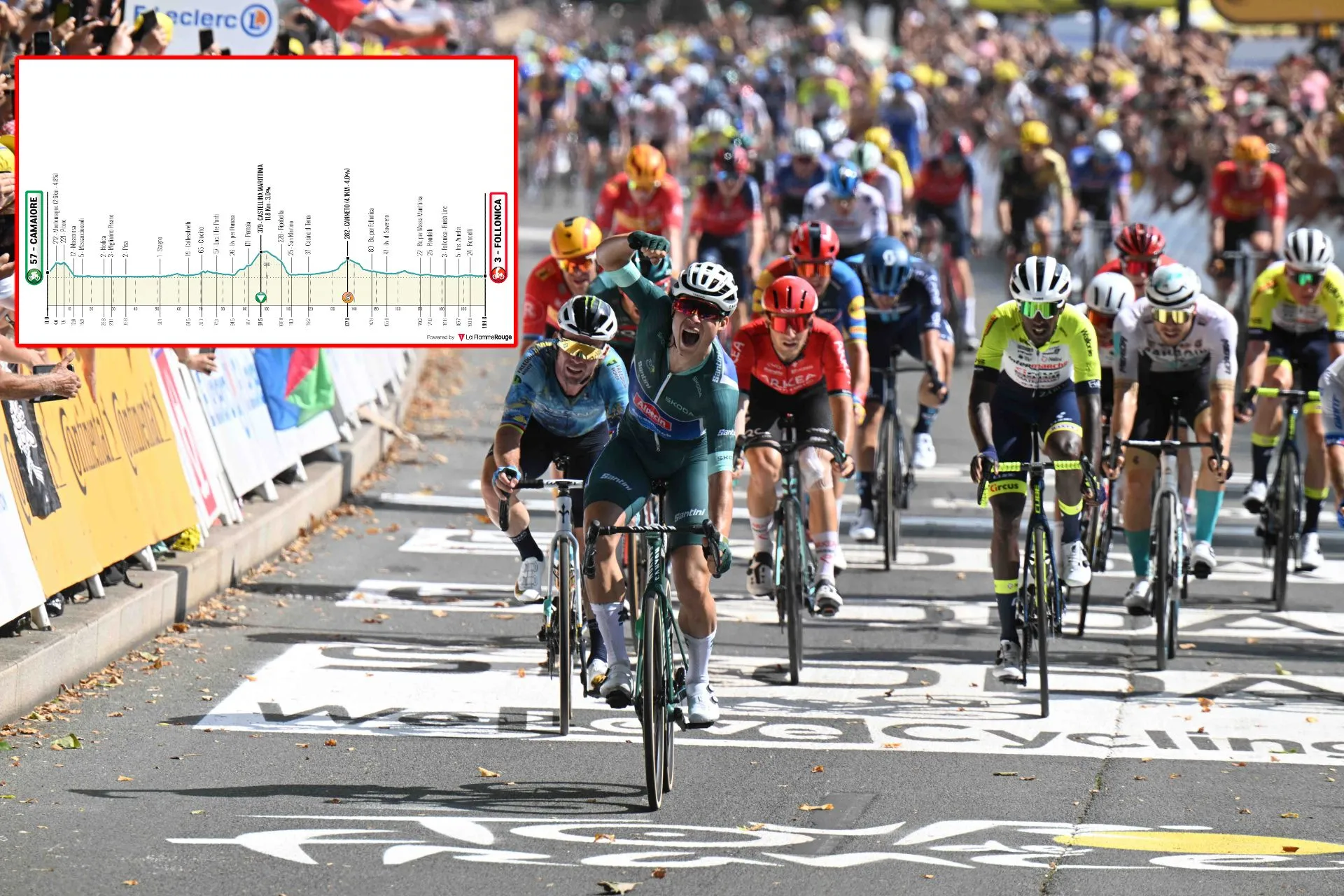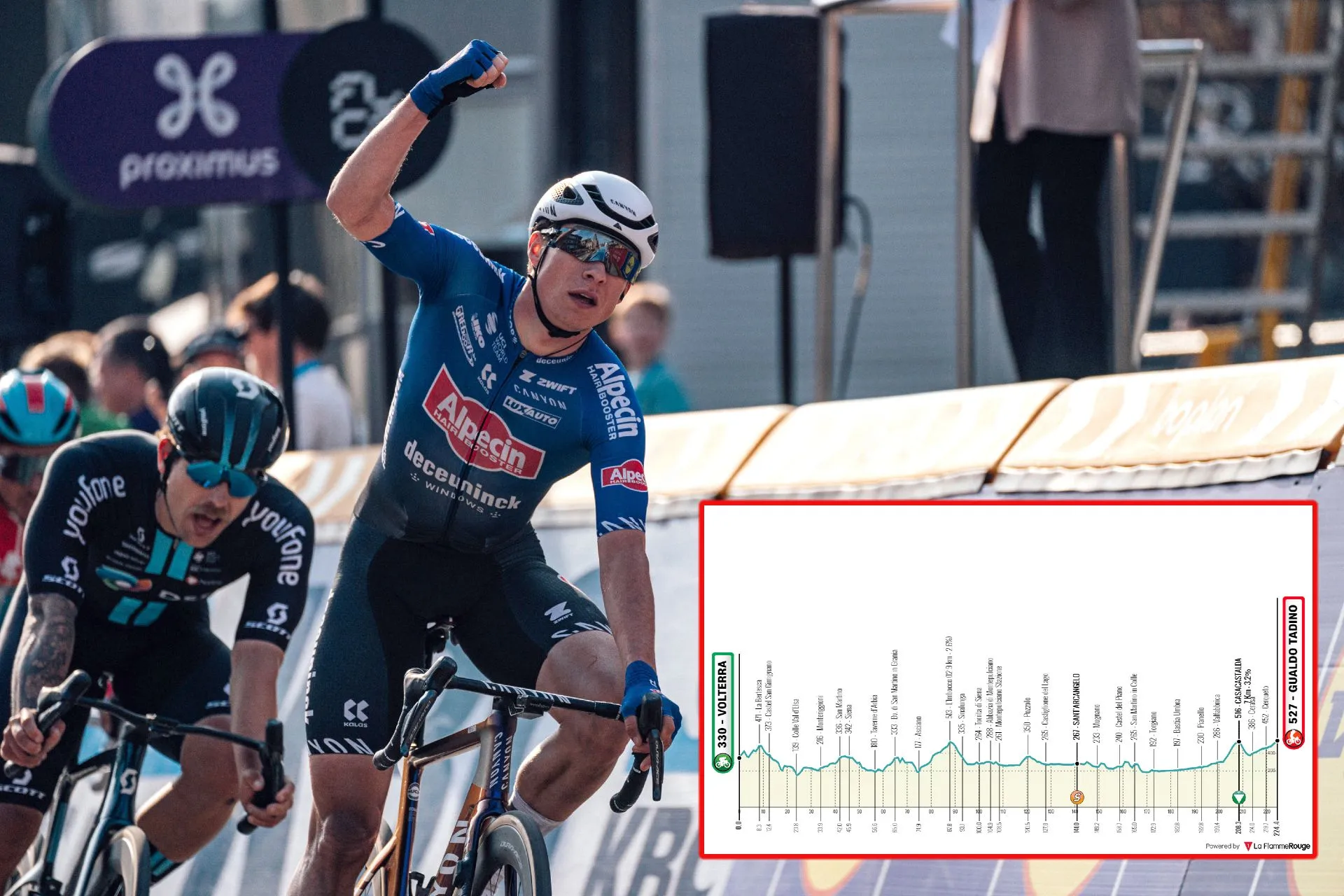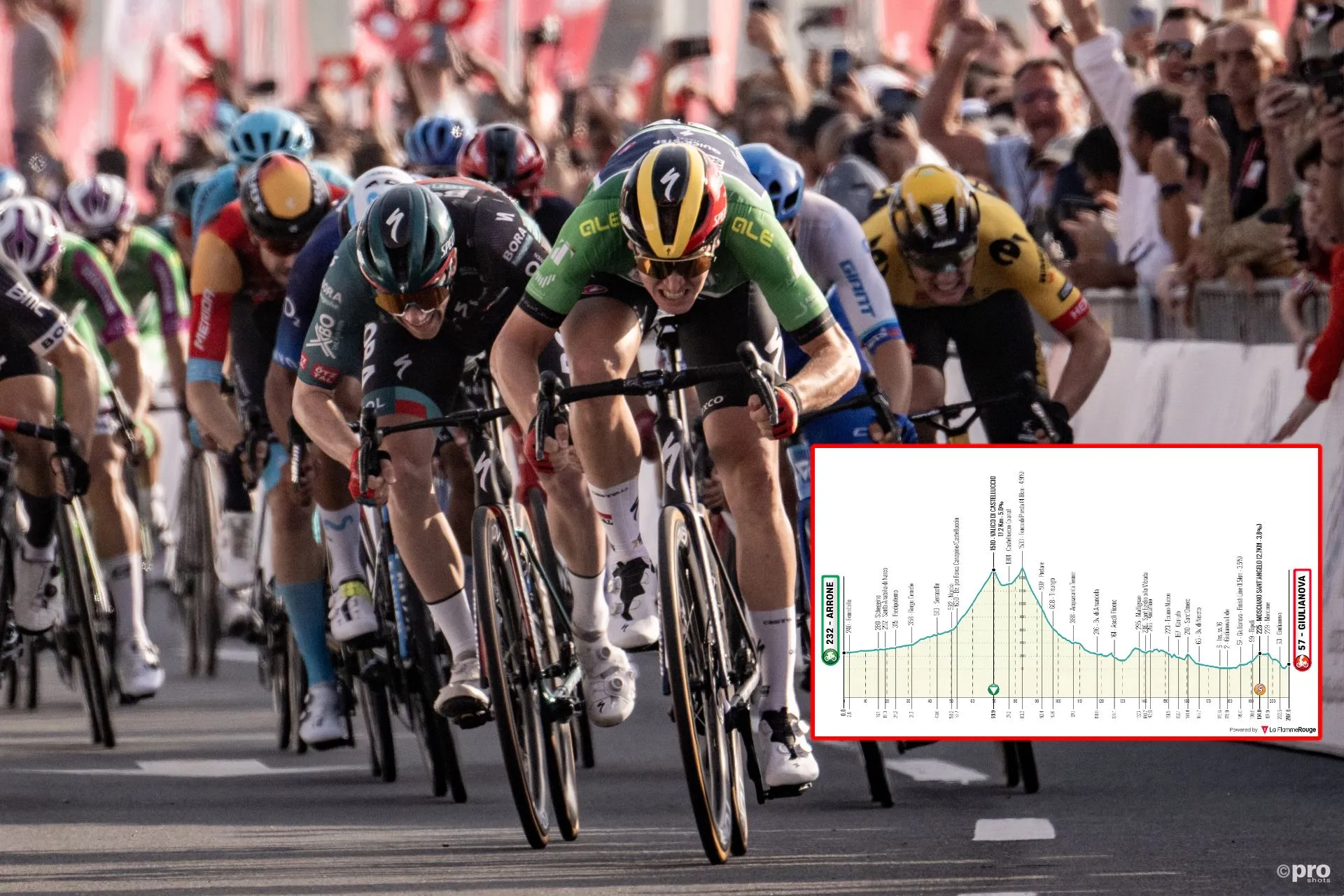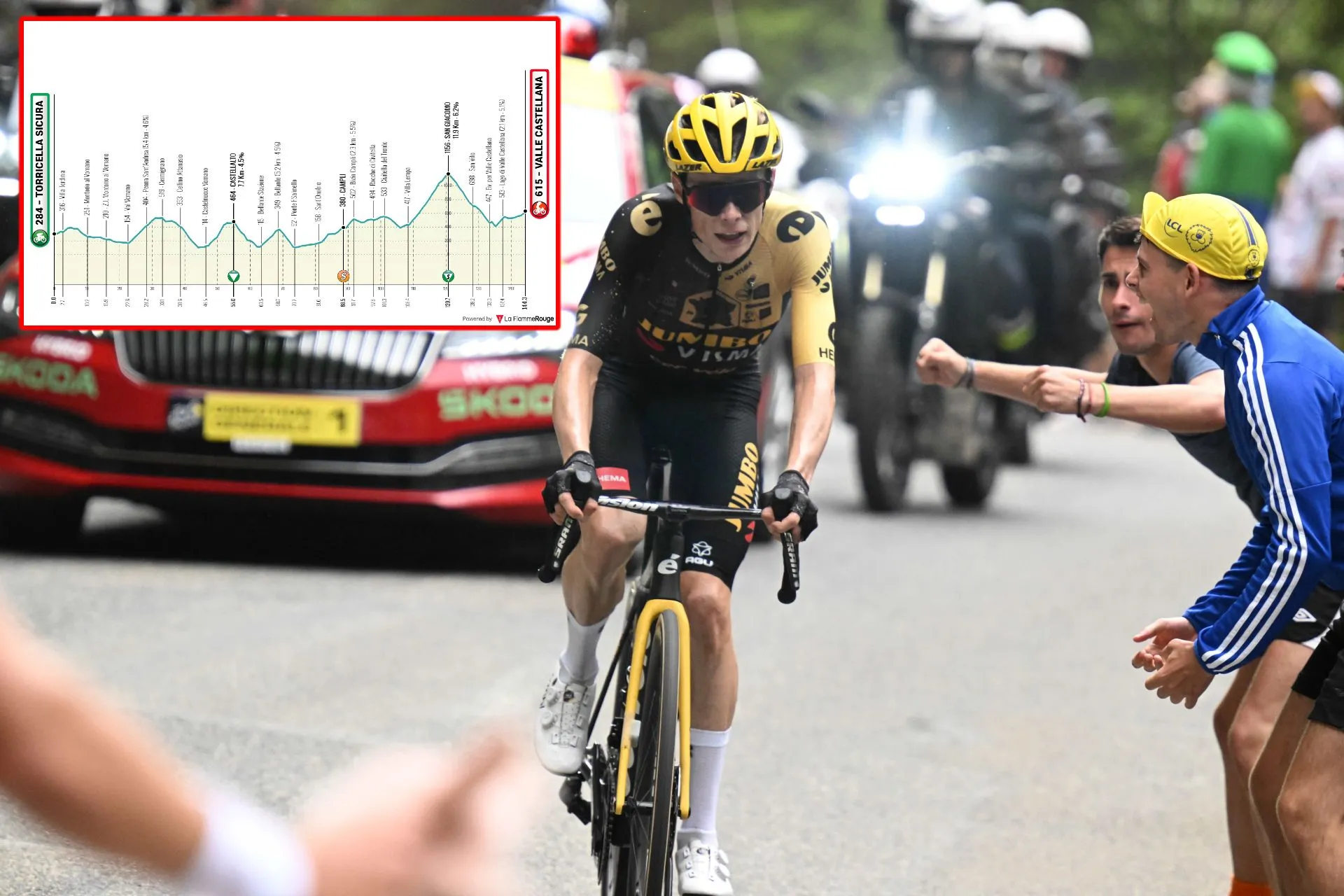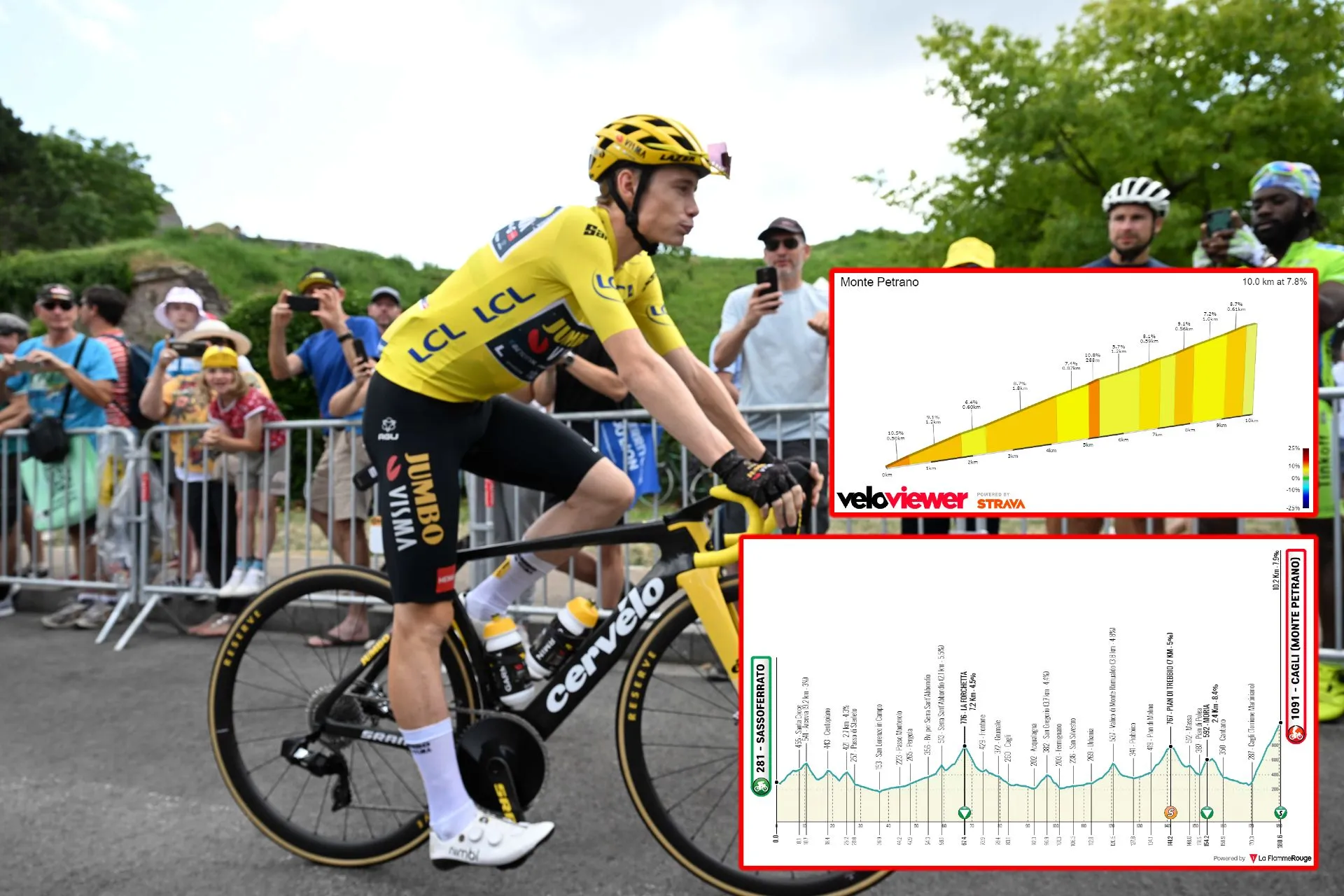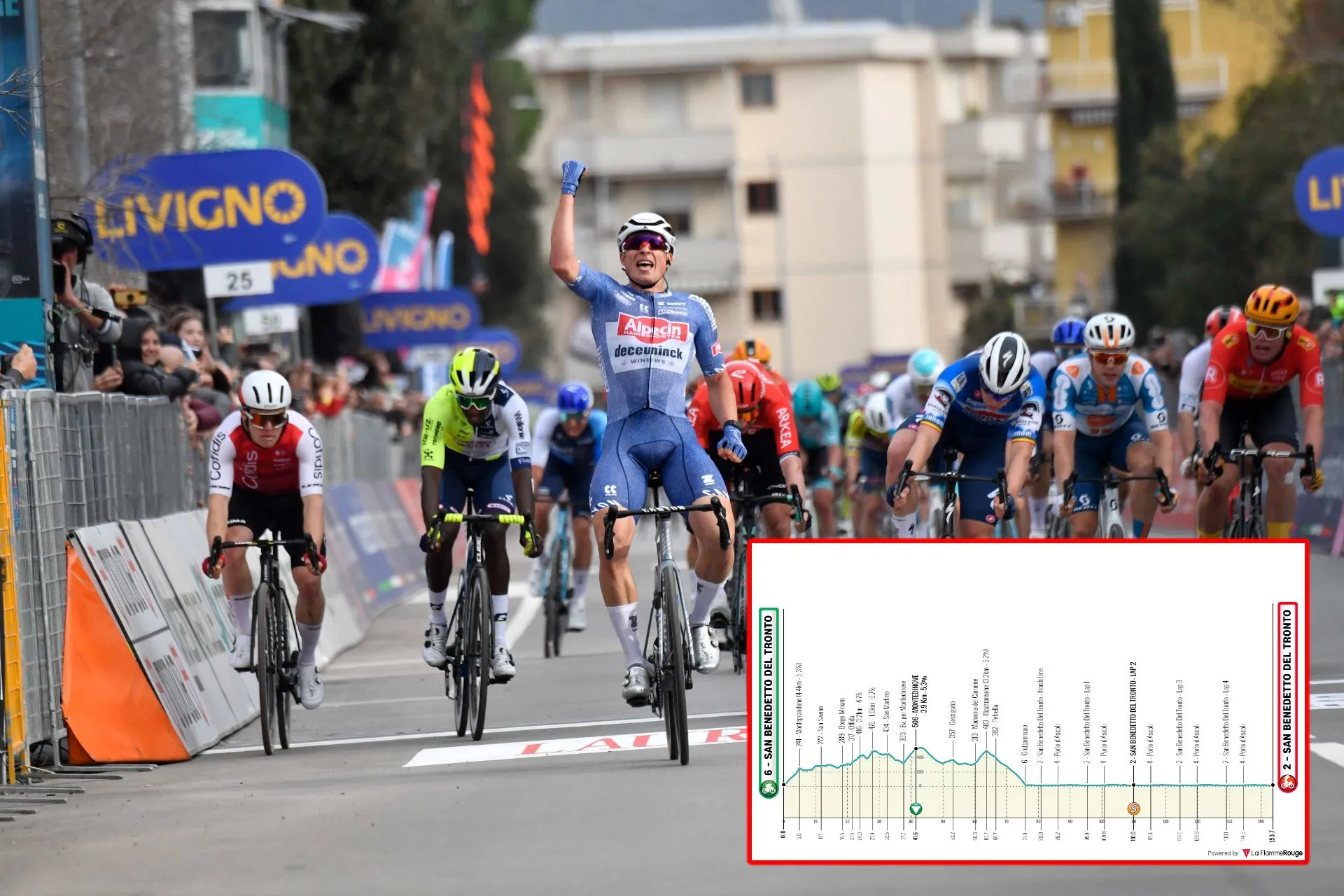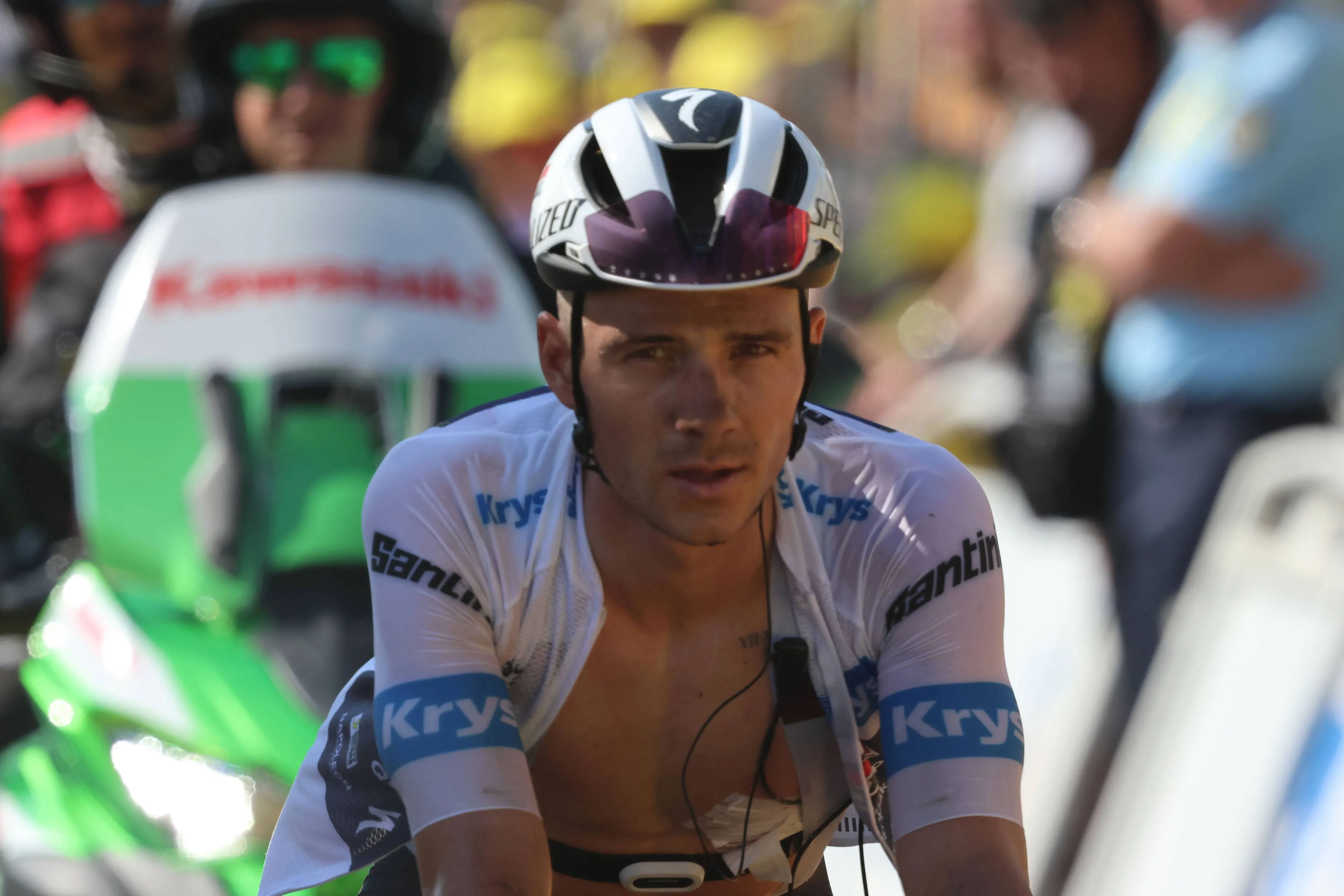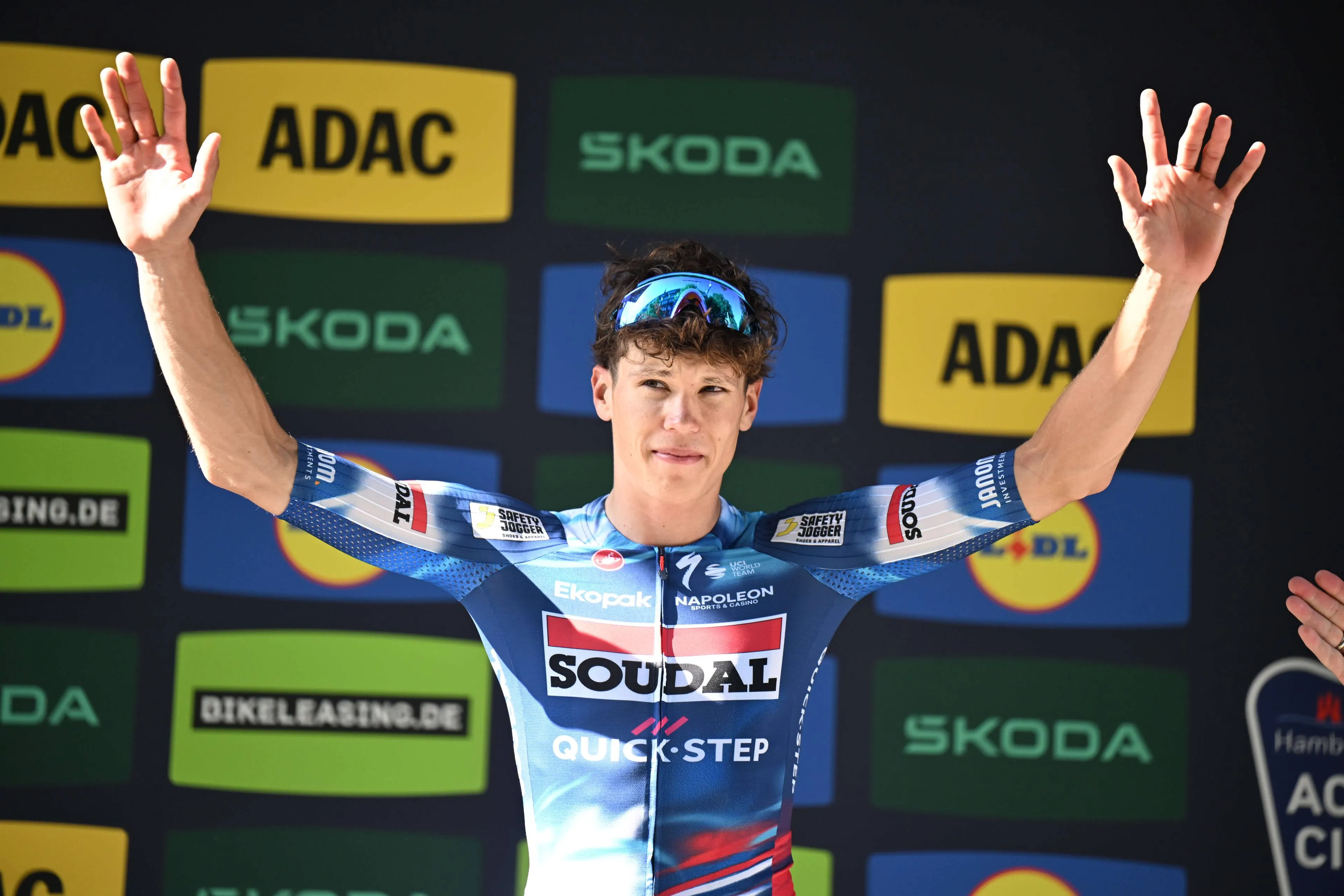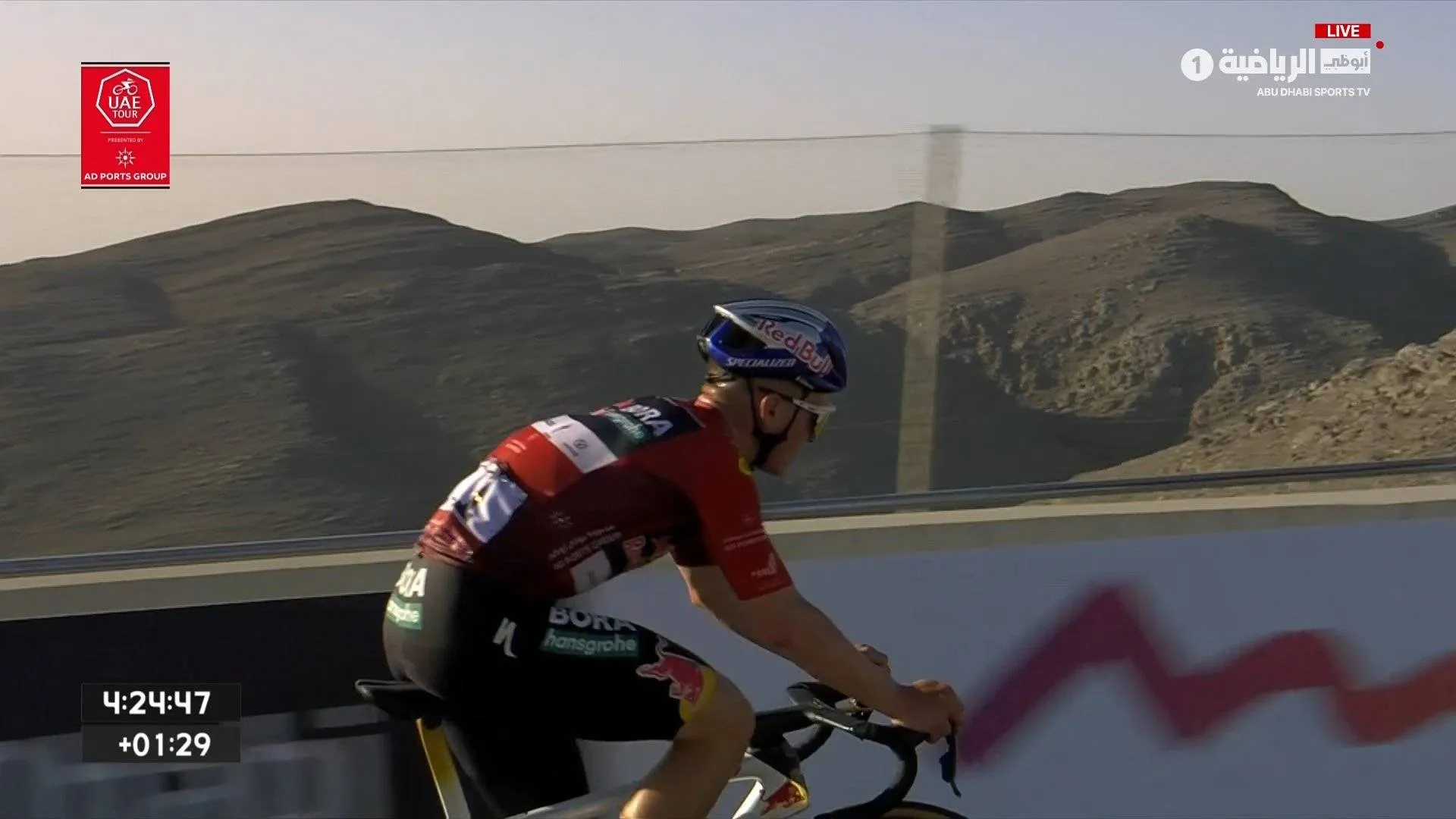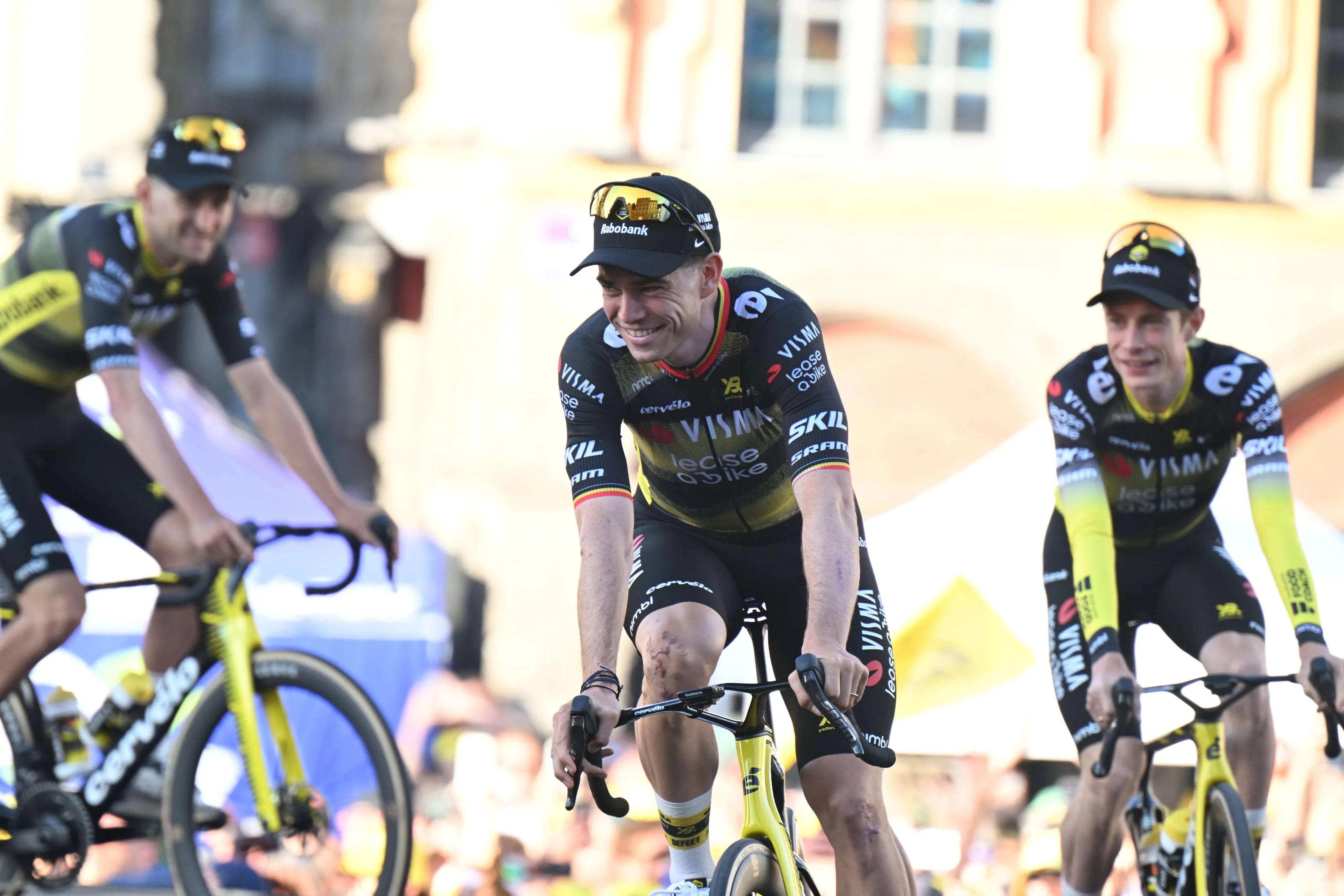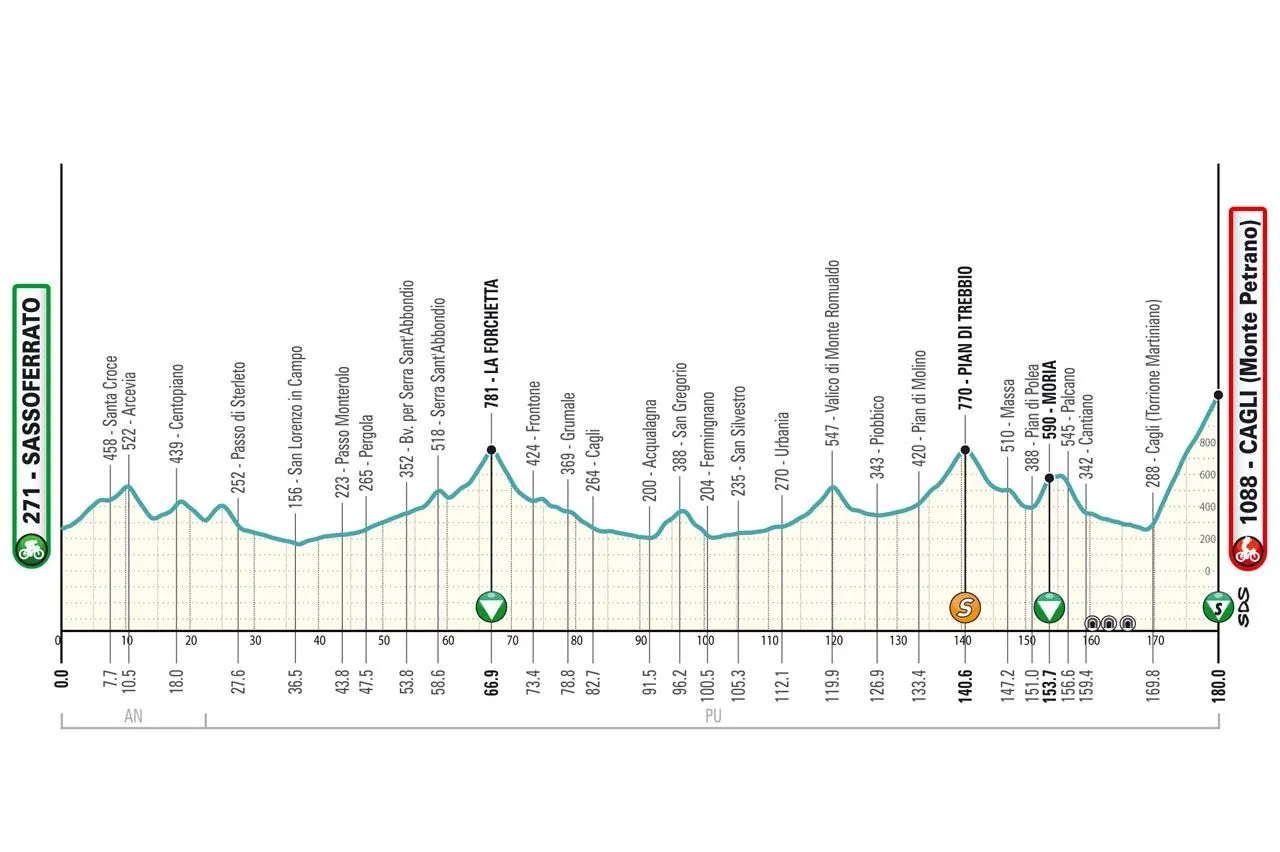
Profile. From the 4th to 10th of March we've got one of the most important stage-races of the year taking place. Tirreno-Adriatico is a prime race for stage-racers throughout the spring, and a launchpad for classics specialists and sprinters ahead of the first monuments of the season.
The race features seven stages, opening up with a day for the time-trialists. We've got two days that should be pure and flat bunch sprints, two stages that should end in sprints but feature some climbing and present good opportunities for puncheurs and classics specialists. Out of the two mountain stages we've got the clear key day on stage 6 to Monte Petrano; and a tricky but very open day on stage 5 to Valle Castellana.
Read also
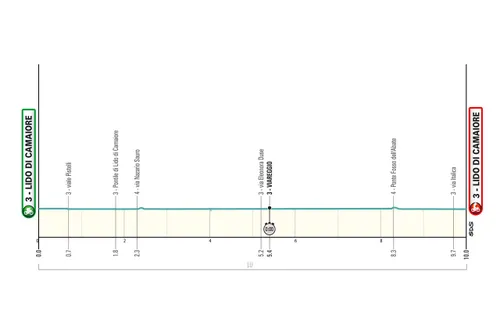
Stage 1 (ITT): Lido di Camaiore - Lido di Camariore, 10 kilometers
The race starts off, as usual, with an individual time-trial. By the Tirreno sea once again, the riders find 10 kilometers against the clock in the town of Lido di Camaiore.
A completely pan-flat time-trial with very few technical features. Mostly an out-and-back time-trial right by the coast, where the wind may have some influence in the time-trial.
Some gaps will be opened in the first day of the race when it comes to the overall classification, whilst a specialist will also take the first leader's jersey.
Read also
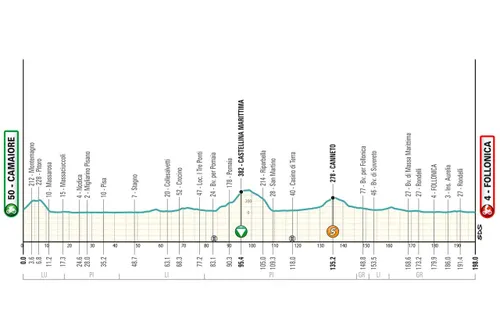
Stage 2: Camaiore - Follonica, 199.5 kilometers
Stage 2 of the Italian race begins in Camaiore and right from the gun we've got a hilltop. A nice start to the day, one however that should be relatively calm - as it usually is the case early in the stage-races. On the menu is a flat and relatively simple day.
Almost 200 kilometers on the menu with two hilltops under the way. The peloton will head towards Follonica. They will race through the finish line twice, meaning the sprinters will see the finale once before going in for the decisive effort.
A very fast sprint no doubt it will be. The final kilometers are relatively windy and inside the final kilometer there will be a roundabout that needs to be ridden through with 800 meters to go. There will be an all-out sprint to the final corner that takes place with 350 meters to go.
This will be a key point, going out of the corner with speed is crucial, but equally, if you're coming from behind you've got a 350-meter long sprint ahead. Good positioning is key so as to have the legs in the final meters then, but this can also open up the possibility of some interesting sprint tactics.
Read also
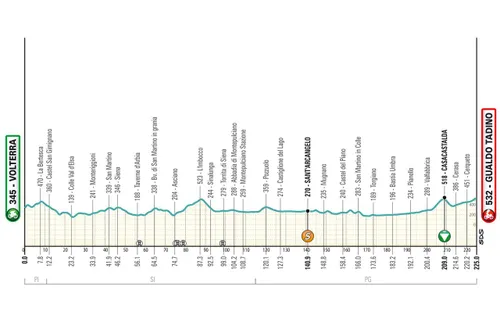
Stage 3: Volterra - Gualdo Tadino, 224.4 kilometers
The third day of racing is one that is very interesting. The finale into Gualdo Taldino is the very same as in 2021, where Mathieu van der Poel outsprinted Wout van Aert. A long day with 224 kilometers, it definitely is made to test the form of the classics specialists and those eyeing Milano-Sanremo specially.
2600 meters of climbing, the first third of the day is relatively hilly. Nothing too difficult but it will add to the fatigue. The sprinter-puncheur balance is what will dictate the day, the teams of those who can climb better will want to push the pace in the uphill sections.
The most important perhaps is the climb to Casacastalda which is 5.9 kilometers at 3.6% - quite similar to the Cipressa, interestingly. This summits with 16 kilometers to go. A short descent follows, and then a gradual false-flat road into the final town. The finale is explosive.
Honestly a sprint is hard to avoid but it is possible. Leading into the final kilometer we have a ramp that goes up to 11%, the run-up will be very fast, here I expect some attacks - the final kilometer has a few turns which will make bringing them back hard. A winding final kilometer and a short finishing straight which has a 5% gradient. A very explosive and likely exciting finale lies ahead.
Read also
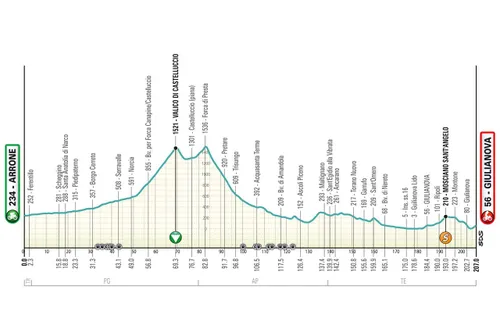
Stage 4: Arrone - Giulianova, 208.2 kilometers
A very tricky day of racing. One for a possible breakaway, reduced bunch sprint, or perhaps an actual sprint that doesn't face too many casualties beforehand. The main point of the day is quite obvious: the Valico di Castellucio. It is 16.9 kilometers at 5%, a tough climb for pure sprinters. However it starts 50 kilometers into the stage and ends with 138 to go, it will be hard to see any team commit.
The riders come back down once again close to sea level. The difficulties lay later into the 208-kilometer long day. A small hilltop summits with 13.5 kilometers to go, some teams may try to push the pace there to further put the fast men into difficulties, however it may all come down to the final kilometers.
A very fast descent will take place into Giulianova, the fight for positioning before and after this descent section will be crazy. The descent ends and the final hilltop will be there right away. 1.8 kilometers at 3%.
A climb that features 5/6% grades in it's first half with a sweeping hairpin and another sharp turn into the final straight which happens with 700 meters to go. From there on a 2% rise to the line. Some riders will be suffocated and they will not really be able to rest. It is completely straightforward and a bunch sprint is likely, but there is definitely space for a surprise.
Read also
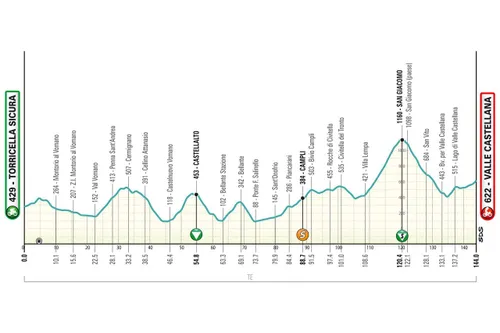
Stage 5: Torricella Sicura - Valle Castellana, 144.8 kilometers
Four rolling climbs before reaching the main climb of the day. None are too hard and none are right at the start of the stage, they may not influence the outcome of the day much, but will get some fatigue in. A short day however, this may not be too much.
The main feature of the day is San Giacomo. On the eve of the queen stage, the climb may not see too much action however. It ends with 23 kilometers to go, the climb is very windy and has a technical descent which may influence attacks.
On the opposite side, the climb is rather consistent. Most of it is in 6% gradients, with some slight kilometers at 7/8% and the final 3 kilometers at 4/5%. An opportunity to attack, sure, but a climb where slipstreaming will be possible.
Teams may instead opt to play with their numbers and race for time in the slight ascent to the line. Valle Castellana hosts the finale. 2.1 kilometers at 5% summits with 8 kilometers to go. We then have a flat section.
The rise to the line then will be interesting. Both a solo or sprint finish can be interesting, the final few hundred meters see the gradients once again rise (to the maximum of 8%) and a few hairpins into a scenic town. A nice end to a day of racing.
Read also

Stage 6: Sassoferrato - Cagli (Monte Petrano), 180.6 kilometers
The queen stage of the Italian race was left quite late into the week. A day where it is very obvios that all the action will take place in the final climb. Beforehand there are some ascents and damage can be done, sure, but it's all a matter of saving the legs for the finish.
3500 meters of climbing throughout the 180 kilometers. In the final third of the stage we have two important ascents - 7 kilometers at 5% and 2.4 kilometers at 8.5%, summiting with 39 and 26 kilometers to go. All roads lead to Monte Petrano.
10 kilometers at 7.8%, with a very difficult start at 9/10%. The gradients do lower slightly into it's final phase but there, the riders find a few hairpins which allow for explosive moves and motivate attacks. A climb that is not overly difficult, but is tough enough for the pure climbers to make the difference. The overall classification may be decided here.
Read also
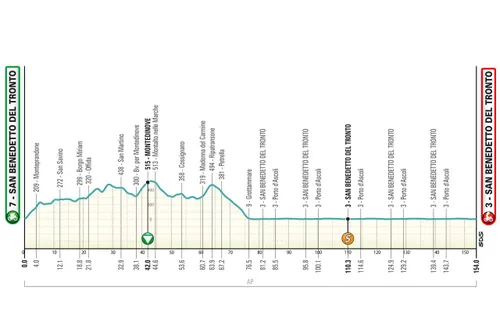
Stage 7: San Benedetto Del Tronto - San Benedetto Del Tronto, 154.2 kilometers
As usual, San Benedetto Del Tronto is where the race ends. The profile is also one that will not surprise the riders, it's a stage split into two different sections. The first can be a last test for the classics specialists to go all-out and test their form.
This is a day where in the past breakaways have succeeded, the first 65 kilometers are quite hilly, featuring several hilltops, rolling roads... Very explosive terrain. Afterwards the riders descent back into town and find very fast and pan-flat urban roads where it is not easy to close in gaps. The speed needs to be constantly quite high.
A bunch sprint still, is the most likely scenario. There is going to be a race towards a small chicane with 750 meters to go. A pan-flat sprint follows, one for the purists.
Read also
claps 0visitors 0
Just in
Popular news
Latest comments
- Fantastic climb by Tiberi. Let’s see more of this from him.Pedalmasher19-02-2026
- Loved watching this finale. Brutal climb, looked like a brand new Middle Eastern Alpe d'Huez with those switchbacks on the mountain edge. So much grit on Del Toro's face. I really thought he might catch Tiberi with about 1500m to go. Great stage.antipodeanpedalfan19-02-2026
- You’re expecting cycling to stay immune from this type of conjecture when the worlds’ most watched and listened to figure spouts out similar unsubstantiated crap daily? Most people just follow bad example because it’s a lot easier than figuring out a good one. Anyway, it could be anything, perhaps he just knew Andrew too well, or Sir Jim didn’t want him helping any more of those pesky foreigners and paid him off ;-) He doesn’t seem the Epstein type but if that was it, kudos to him for being practically the only one to resign BEFORE being found out. I find it very concerning that no-one has much to say about any of these people who keep at it until they just can no longer claim their innocence. Who did they learn from, Lance?Mistermaumau19-02-2026
- If you are going to make comments like that, back it up with proof. Otherwise keep them to yourself.Searider18-02-2026
- In the same place as the outcry over boys vs girls losing weight, which, is in about the same place as boys vs girls getting hit, or abused.Mistermaumau18-02-2026
- Haha.awp18-02-2026
- That's a little extreme, you take wins where you can get them.awp18-02-2026
- Ironic no, a British boss of British companies has no problem outsourcing a large proportion of jobs to foreigners and then complains a proportion of that proportion actually lives in the country. And do you expect if you leave that no-one will take your spot?Mistermaumau18-02-2026
- Slowly slowly the youngsters are making more and more of an impact.Mistermaumau18-02-2026
- I agree for certain situations, especially camps and popular training destinations but teams can’t manage or afford to chaperone all their riders all the time. Off season they still have to train and want to be home as much as they can (this is also where they are easiest to « catch »). On the other hand, if riders like Tadej accept « invitations » to ride on certain roads just for promotional purposes like in Gran Canaria they are also responsible for any trouble it attracts, you can’t expect people to stay away once you deliberately notify where you’re going to be and when. SeemsMistermaumau18-02-2026
Loading
One race. Two seas. One champion. 🔱 Who will be the king of 2024 Tirreno-Adriatico @CA_ita? #TirrenoAdriatico
Write a comment
